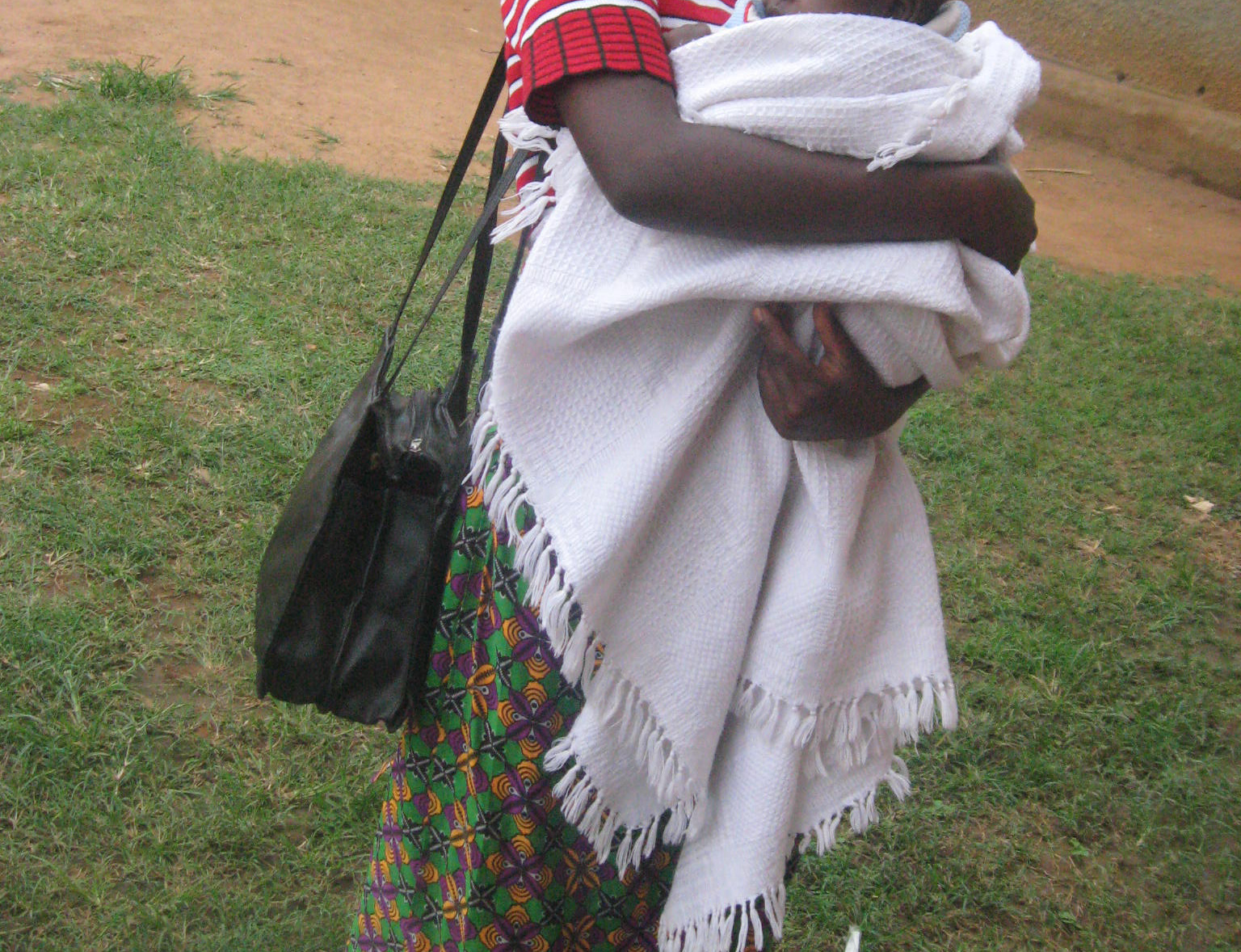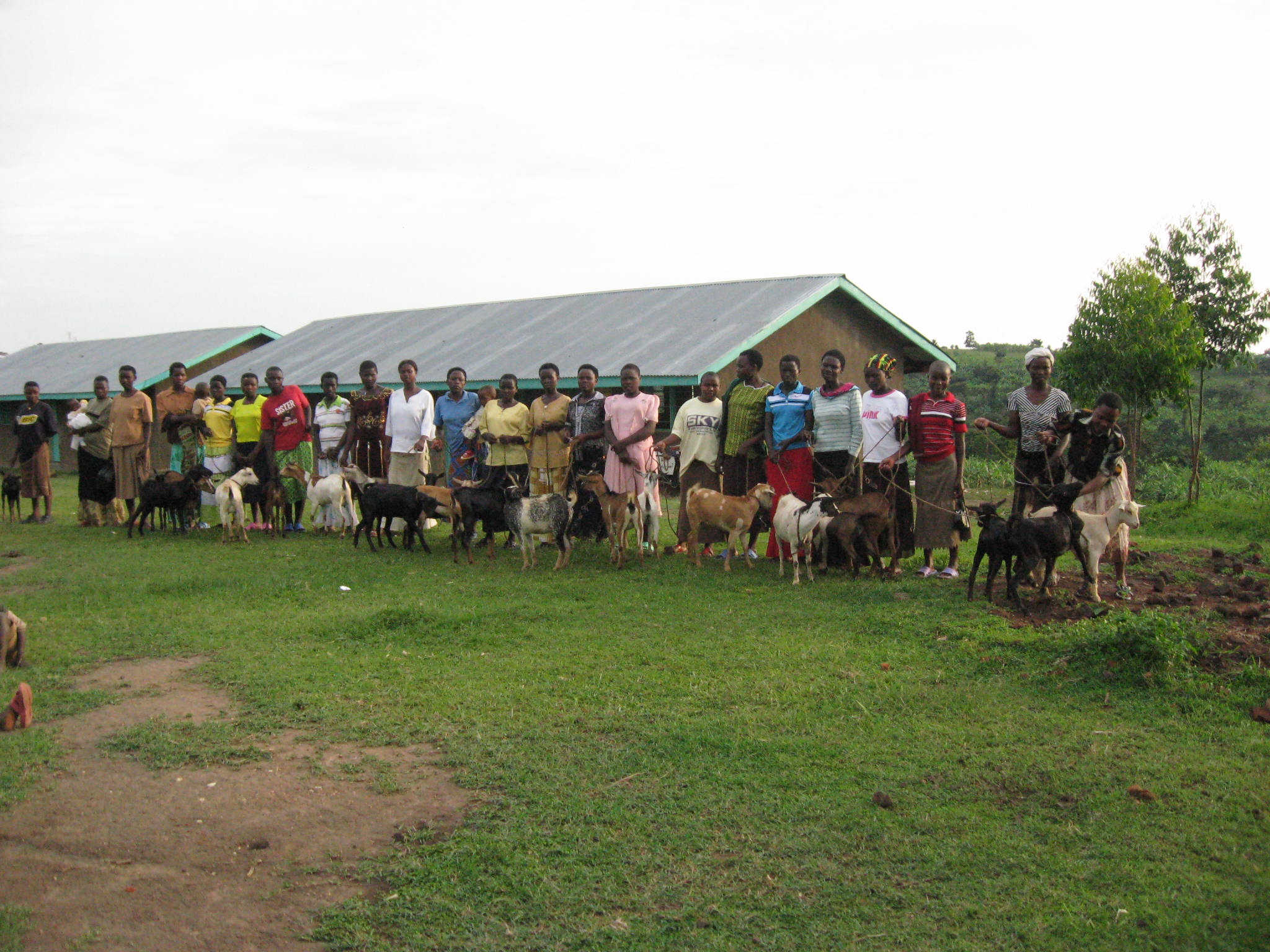
MANAFWA – While many a child in the village joins other children to play, Namono, although a child spends most of her time at home.
Namono, 14, says she remains at home to split fire wood and prepare milk for another child; her baby.
She says besides the general pervasive atmosphere, she is also enduring the harsh realities of being defiled and turned into a mother at the age of 13.
She explained that a neighbour in his late 30s exploited the absence of her parents, sneaked into the house and raped her.
“After a few weeks, I started feeling unusual, sickly and spitting every time, my parents took me to the hospital, the nurse on duty pronounced that I was pregnant. My parents told me to go alone to the man who had impregnated me and abandoned me,” she explained.
She said that she decided to go to her grandmother whose single room mud and wattle house serves as a chicken house and goat house yet at the same time serves as a kitchen due to poverty.
For every day of the week that comes by, Namono watches her colleagues go to school and others go to play. She is envious because under normal circumstances, she should be in the company of her friends, trekking the same path.
“For most of this year, I have been trying to figure out whether I am a child or adult and whenever I think about this, I begin crying, especially when I see my friends and age mates playing and thinking about school,” she adds.
But her story is not different – there are many teenage girls turned into mothers in Namisindwa and Manafwa districts who are going through similar circumstances because they are either pregnant or are looking after their babies.
More typically, however, the child mothers of whom there are about 961 under African Rural Development Initiatives [ARDI] in the sub-counties of Bumoni, Bumbo, Butiru, Namabya, Magale and Bubutu sub-counties – describe a similar inhuman treatment by their parents.
Mr Joseph Weyusya the Manafwa district community Development officer [now retired] who doubles as the executive director of ARDI, an local NGO which is trying to restore hope of the teenage mothers says that families living at the boarders bear strains of abuse that impact their children’s adjustment and coping.
He explained that most parents are involved in cross border business and have no time to teach their children about sexuality, reproductive health and how to keep themselves safe from unwanted pregnancies.
“I have about 961 teenage mothers at ARDI, but when you interact with them, they will tell you that their pregnancies were accidents because they were raped, coerced into sex, deceived and they regret everything,” said Mr Weyusya.
“And many of these are usually raped and impregnated during Kadodi processions which take place here in Bugisu every even year. Many of our children here lack information on sexuality and reproductive health and this lack of information poses greater risks,” added Mr Weyusya.
He explained that ARDI research tells them that children who are well informed and comfortable in talking about sexuality with their parents are the least likely to have intercourse when they are adolescents.
Dr Gideon Wamasebu, the DHO Manafwa says ignorance leaves the teenagers very vulnerable to a lot of social ills including sexual exploitation, HIV/Aids and death and many of them suffering later from fistula, STDs, HIV/Aids and other reproductive health complications.
“And because of lack of knowledge about sexuality, adolescents are at risk because they are disproportionately affected by unwanted pregnancies, unsafe abortions, sexually transmitted infections (STIs) including HIV and dangerous childbirth.” Dr Wamasebu said.
Dr Stephen Masai, the DHO Namisindwa said teenagers face barriers to reproductive health information and care and even those able to find accurate information about their health and rights may be unable to access the services needed to protect their health.
He explained that for young people in Namisindwa and Manafwa districts, the onset of adolescence brings not only changes to their bodies but also new vulnerabilities to human rights abuses, particularly in the arenas of sexuality, marriage and childbearing.
Dr Masai says that sexuality education is the only essential means of empowering teenagers to make informed decisions about their sexuality and reproduction, free from violence, discrimination, or coercion.
He said statistics at Namisindwa and Manafwa districts indicate that most of the adolescents get pregnant before their 14th birthday, with many dropping out of school to fend for themselves and their children.
“Many of the teenagers are driven into relationships mainly due to poverty, parental neglect and some reportedly for mere pleasure of having an older boyfriend with ‘lots of money’ to boast about,” said Dr Masai.
The United Nations Population Fund [UNFPA] an international development agency that promotes the right of every woman, man and child to enjoy a life of health and equal opportunity says governments should stop treating sexual and reproductive health care as anything less essential.
A paper by commission on population and development, fifty-second Session, 4th & 5th Meetings (AM & PM) says sexual and reproductive health policies are vital to empowering women and the youth, thus constituting a cornerstone of sustainable development,
“The 2030 Agenda can only be fulfilled with full enjoyment of sexual and reproductive health and rights,” said Sweden’s delegate, stressing that “women and girls must be an active part of development, with full autonomy over their own bodies”. Says the paper in part dated May 2015.
Ms Racheal Achen, the SRHR and Meaningful Youth Participation [MYP] advocate at UNFPA says providing adolescents with evidence-based comprehensive sexuality education is a concrete way to prevent unwanted pregnancies, prevent the spread of sexually transmitted infections and foster gender equality.
She revealed that many teenagers in Uganda are still denied the full range of sexual and reproductive health services, including access to accurate health information and affordable contraceptives which puts the girl-child at risk.
“Adolescents’ sexual and reproductive health ought to be supported and this means providing access to comprehensive sexuality education services to prevent, diagnose and treat STIs; and counselling on family planning,” said Ms Achen.
Ms Achen who was presenting a paper at the World Population Day Media E-Chat on 15 July urged everyone to actively promote and protect the sexual and reproductive health and human rights of adolescents.
She explained that like Namono, the rights of many adolescents have been neglected and abused and that a number of adolescents have made poor decisions that are likely to have a lasting damage on their lives.
She urged government and NGOs to promote Meaningful Youth Participation (MYP) where young people would work in all stages of decision-making in organizations and be allowed to participate on equal terms with adults at a number of levels.
Dr Moses Walakira Programme Specialist (Family Planning) at UNFPA says adolescents today are facing adverse conditions of lack of basic needs, unequal power relations, breakdown of institutions of social control and order, lack of information about their reproductive health and sexuality at homes.

Dr Walakira was also presenting a paper at the World Population Day Media E-Chat on 15 July by Zoom titled; Analysis of the Effect of COVID – 19 on Family Planning Service Delivery in Uganda urged the government, schools, organisations and parents to provide youth friendly services.
He explained that efficient delivery of a holistic, youth-friendly health-care package of services like universal access to accurate sexual and reproductive health information, a range of safe and affordable contraceptive methods, sensitive counselling, quality obstetric and antenatal care for all pregnant women and girls and the prevention and management of sexually transmitted infections, including HIV would save the adolescents in the country.
A report launched UNFPA, titled “Shelter from the Storm: A Transformative Agenda for Women and Girls in a Crisis-prone World,” says that upholding human rights and protecting women’s and girls’ health is especially critical in crisis situations. The report notes that “the supply of assistance aimed at meeting the sexual and reproductive health needs of women and girls has not kept pace with the demand.”
Dr Muhammad Mulongo, a gynecologist at Mbale hospital urged parents to play their role in their children’s sexuality education by providing the family perspective, supporting children’s level of comfort in discussing sexuality-related issues, maintaining an open dialogue with the school about the school-based sexuality education program and responding positively and supportively to learning opportunities at home to save their children from risks.
He explained that a reduction in availability of essential Sexual reproductive Services [SRH services] has resulted in increased maternal and new-born deaths, unintended pregnancies and unsafe abortions among many teenagers.
He said let everyone, everywhere have access to quality care that is affordable, acceptable and delivered with respect for the dignity and rights of each person and that this means coverage of all essential services, including sexual and reproductive health services across the life course.
He explained that women, men, adolescent girls and boys all require these services throughout their lives, whether it is having the necessary information and counseling for sexual health and well-being, choosing and accessing contraception, going through pregnancy and childbirth safely or protecting themselves from sexually transmitted infections, including HIV, or reproductive cancers.
Dr Mulongo said further that provision of these services is integral to the human rights that all societies must uphold and that sexual and reproductive health services save lives, and allow individuals and communities to thrive.
Mr Weyusya says that although ARDI is now running primary school and a skills development centre for child mothers and other youths at Bumoni is situated in Namisindwa district, a newly created district, there is a lot parents need to do in their homes to save the teenagers.
He explained that because parents are never at home, it is not surprising that so many young adolescents suffer the consequences of a lack of sufficient knowledge in regards to SRHR & GBV prevention.
To prevent child mothers from further social ills, ARDI is giving out a goat to every teenager mother as a source of milk for the baby but at the same time as a means of generating income to look after the baby.
“We have deliberately started a goats’ project as ‘Entandikwa’ for the child mothers, just to help them feel that society thinks about them,” says Mr. Weyusya.
He revealed that besides giving a goat to the child mothers, ARDI also re-kindles the teenage mothers’ lost hope through counseling; guidance, reproductive health, sexuality and life skills development which helps them develop self-esteem, awareness, and become assertive enough to make informed choices and decisions; this has resulted into over 147 child mothers going back to different educational institutions.
“And as ARDI, we know that empowering young people to know and exercise their rights – including the right to delay marriage and the right to refuse unwanted sexual advances is critical to saving their lives and helping them make right choices,” said Mr Weyusya.
The 2011 UDHS indicates that 15% of the married women aged 20 – 49 years were married before the age of 15 while 49% were married by the age of 18 years in Uganda.
The national prevalence of child marriage in Kenya is 23%, Tanzania 31% while Uganda is at 40%, highest in the East African region..
The 2013 World Vision study also ranked Uganda 16th among the 25 countries with the highest rates of early marriages where about 12% girls are married before 15yrs and 46% are married before the age of 18yrs.
The WHO and the ministry of health reports indicate that early child birth is a leading cause of maternal deaths and injuries for teenage girls in Uganda but that sensitization about its dangers is minimal especially among the adolescents.




